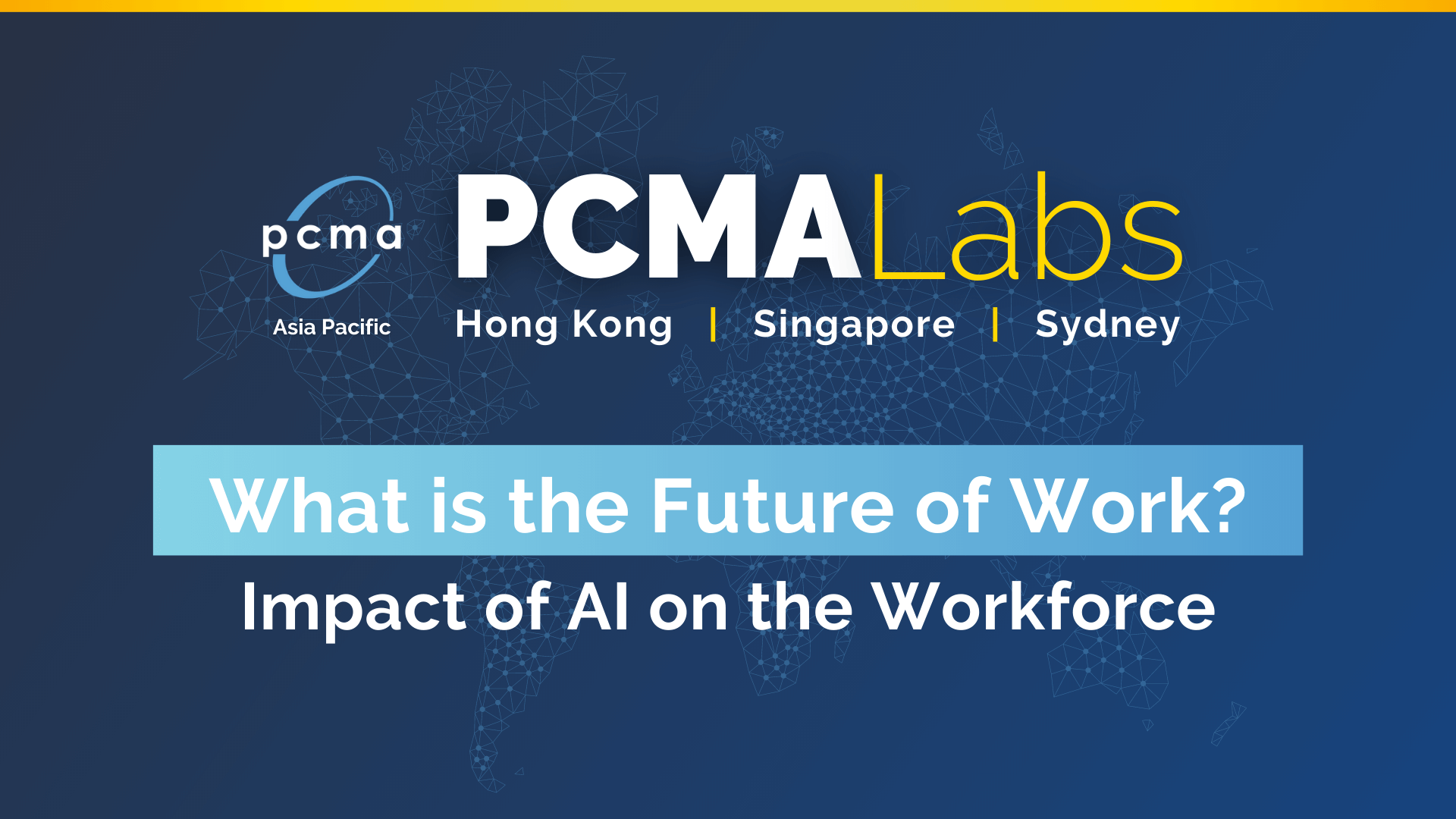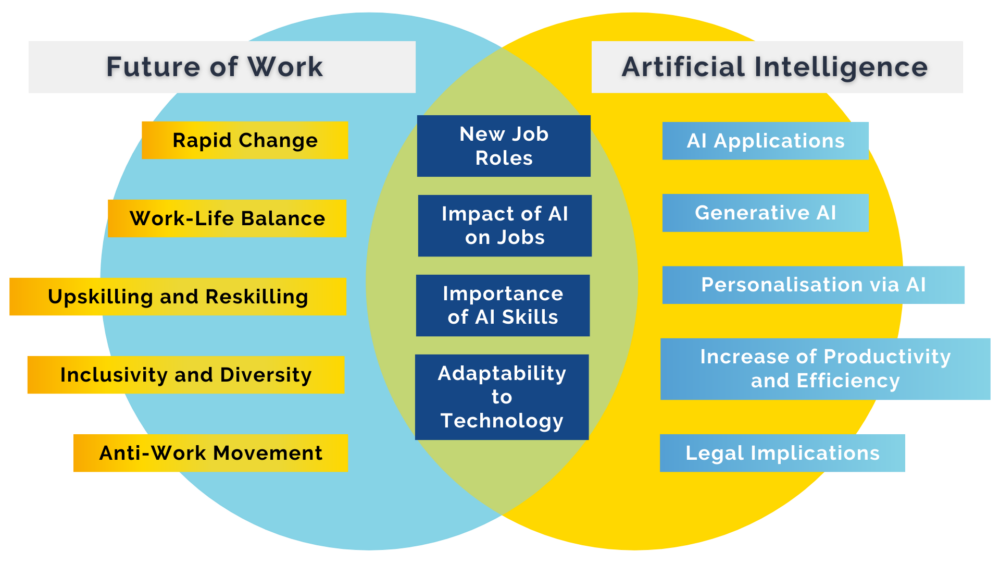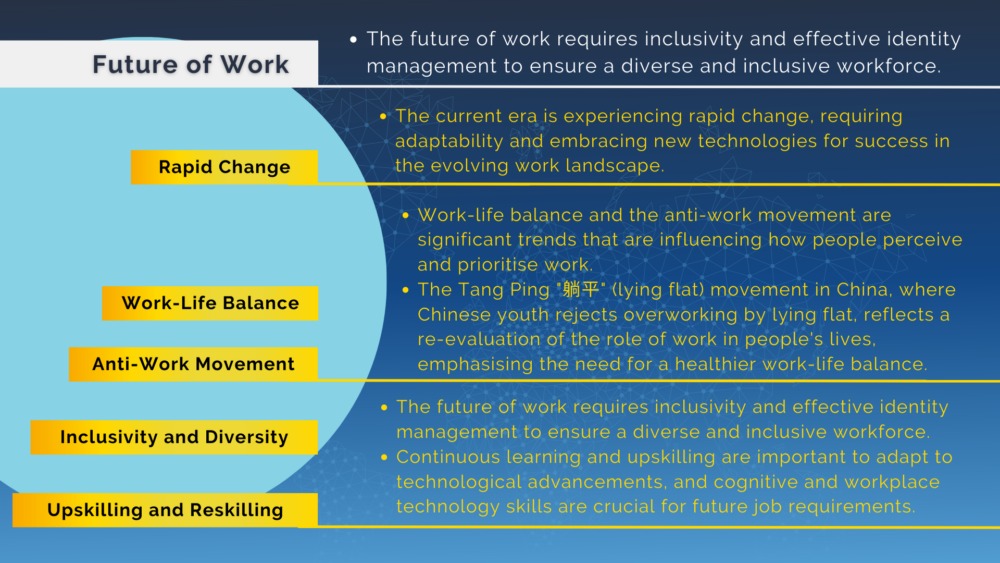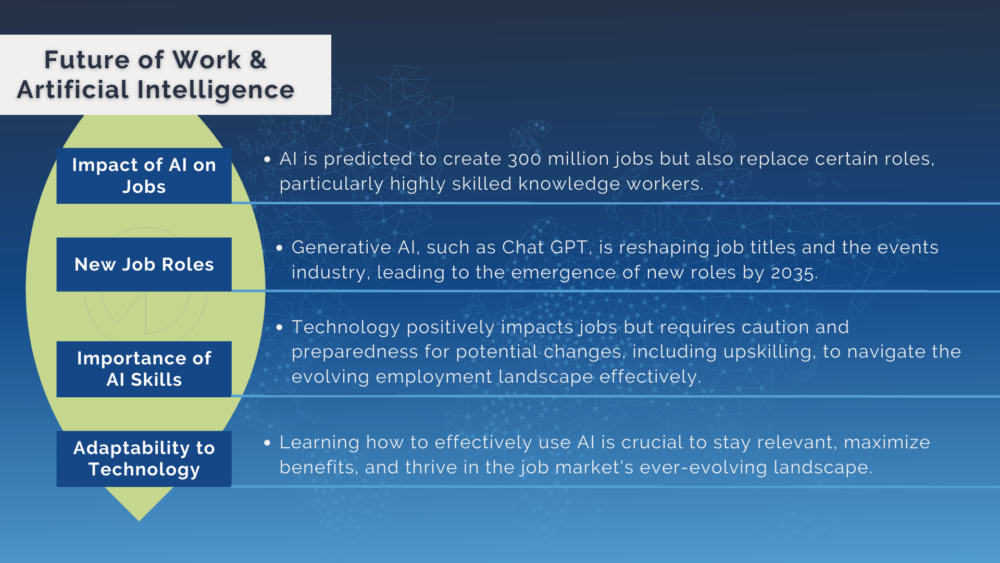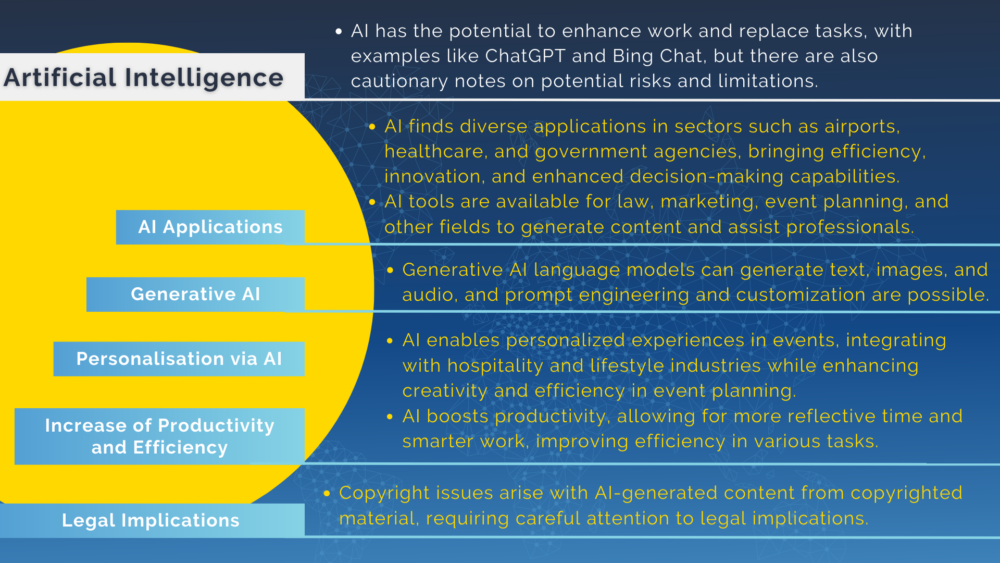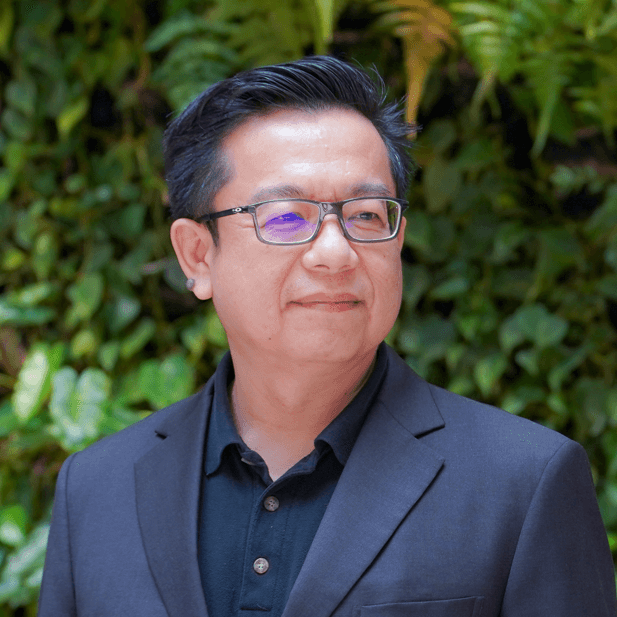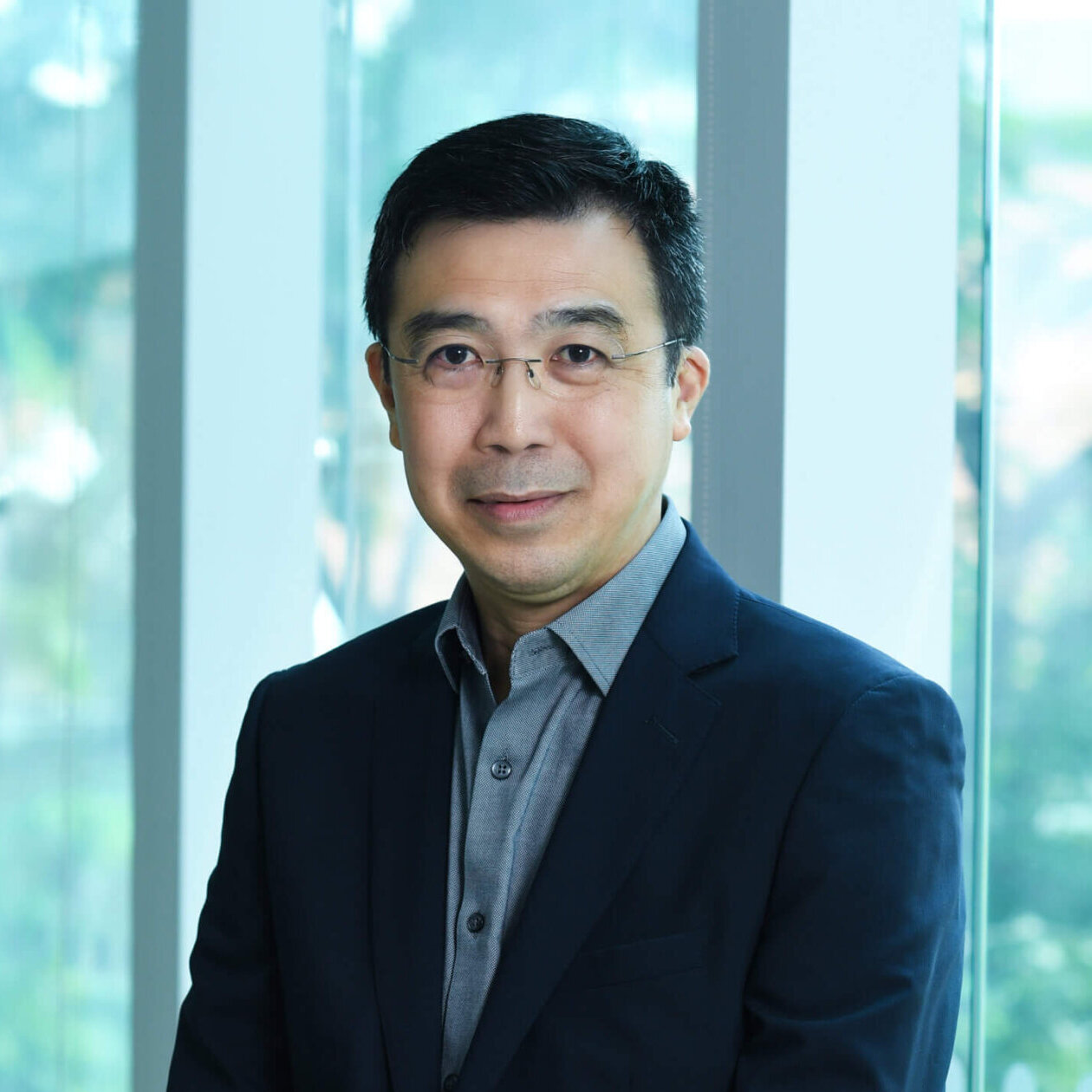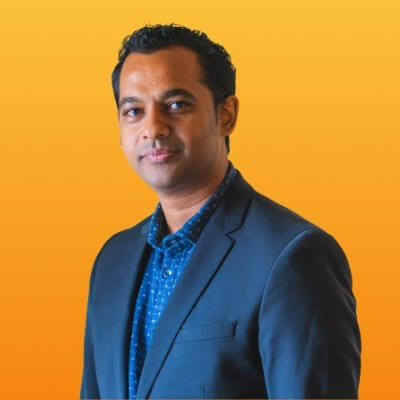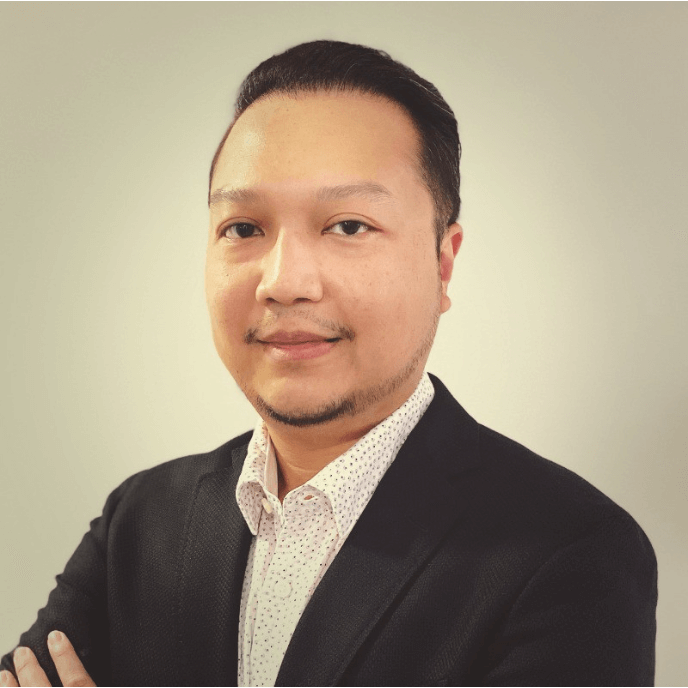What is the Future of Work?
How does Artificial Intelligence affect our workforce in the business events industry?
Technology and digitisation are rapidly changing the way we work. The accelerated adoption of technology during pandemic has impacted the work-life balance perspective of the workforce. AI has the potential to revolutionise the way we work, help with the talent shortage crisis (maybe), but also raises questions about job displacement and re-skilling.
This article explores the Future of Work and how AI affects the workforce in the business events industry, providing Key Insights gathered from expert speakers across Hong Kong, Singapore, and Sydney with the use of SPARK – The AI Tool by Eventprofs, for Eventprofs.
The Result:
Key Insights on Future of Work and AI in Business Events Industry gathered from Hong Kong, Singapore, and Sydney
This Venn diagram below visually showcases how certain key insights are unique to each main topic presented by our expert speakers, while others are shared and emphasise the close relationship between “Future of Work” and “Artificial Intelligence” in shaping the future of our workforce.
Click on each button below to be redirected to each section.
Key Insights:
Based on the expertise shared by our speakers from Hong Kong, Singapore, and Sydney, we have compiled the key insights that reflect the impact of AI on the workforce:
Speaker Quotes:
Let’s hear from our expert speakers, who shared their industry insights and real-life experiences at the PCMA APAC Labs:
Participants’ Contributions:
Our participants also shared their thoughts and experiences on artificial intelligence:
1) What are some of the other AI tools you have used / are using?
- ChatGPT
- Midjourney
- Microsoft Bing
- Notion
- WolframAlpha
- Otter.AI
- Bard (Google AI)
- FireFly
- Spotify & Netflix AI
- SlackGPT
- RevenueMan.AI
- Canva
- COLOSSYAN
- Copy.AI
- Vidable
- AI Arta
2) What tasks do you think AI can help you in your everyday work?
- Content summarising and reviewing
- Meeting scheduling, notes collation, etc.
- Data Analysis for reporting and evaluation
- Event content generation and idea brainstorming
- Research: Competitor, Industry/market, speaker, etc.
3) Imagine a future where these tasks are automated and executed by AI. What would that mean:
For you? (Personal / Work)
- More time to develop, reflect and enhance oneself as a person and in career
- More time to strategise, network and think creatively
- More personal time to focus on other aspects of life
For your team?
- Increased productivity, efficiency, and focus level
- More time and opportunities to upskill themselves and fine tune product offerings
- Lesser admin work and more time to be spent on tasks that require human touch such as experience design and idea generation
For your organisation structure?
-
- Company structures become leaner and more efficient
- Industry knowledge and experience for strategic planning becomes more relevant as AI optimises other repetitive tasks.More time to strategise, network and think creatively
Conclusion:
As the business events industry continues to embrace technological advancements, AI stands out as a powerful tool that can shape the future of work. The insights gathered from experts across different cities emphasise the importance of inclusivity, upskilling, and adaptability in preparing the workforce for the evolving landscape. By understanding and effectively utilising AI, professionals in the business events industry can harness its potential to drive innovation and achieve success in their endeavours.

